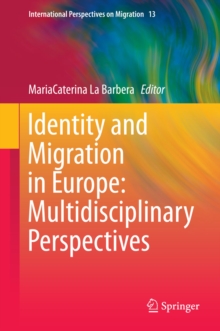
Paradoxes of Integration: Female Migrants in Europe PDF
Edited by Floya Anthias, Maria Kontos, Mirjana Morokvasic-Muller
Part of the International Perspectives on Migration series
Description
This timely and innovative book analyses the lives of new female migrants in the EU with a focus on the labour market, domestic work, care work and prostitution in particular. It provides a comparative analysis embracing eleven European countries from Northern (UK, Germany, Sweden, France), Southern (Portugal, Spain, Italy, Greece, Cyprus) and Eastern Europe (Poland, Slovenia), i.e. old and new immigration countries as well as old and new market economies. It maps labour market trends, welfare policies, migration laws, patterns of employment, and the working and social conditions of female migrants in different sectors of the labour market, formal and informal. It is particularly concerned with the strategies women use to counter the disadvantages they face. It analyses the ways in which gender hierarchies are intertwined with other social relations of power, providing a gendered and intersectional perspective, drawing on the biographies of migrant women. The book highlights policy relevant issues and tries to uncover some of the contradictory assumptions relating to integration which it treats as a highly normative and problematic concept. It reframes integration in terms of greater equalisation and democratisation (entailed in the parameters of access, participation and belonging), pointing to its transnational and intersectional dimensions.
Information
-
Download - Immediately Available
- Format:PDF
- Publisher:Springer Netherlands
- Publication Date:02/11/2012
- Category:
- ISBN:9789400748422
Information
-
Download - Immediately Available
- Format:PDF
- Publisher:Springer Netherlands
- Publication Date:02/11/2012
- Category:
- ISBN:9789400748422










